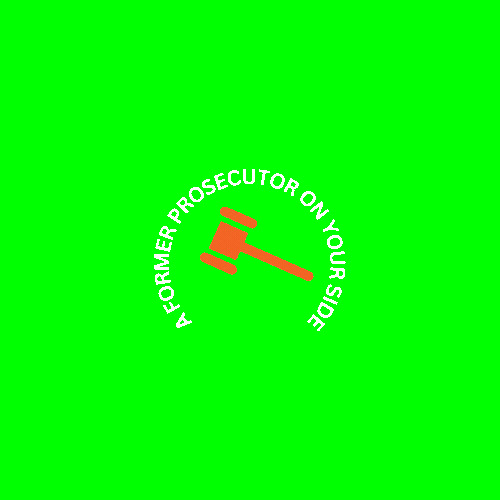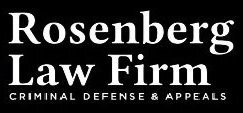Best Speeding & Traffic Ticket Lawyers in Brooklyn
Share your needs with us, get contacted by law firms.
Free. Takes 2 min.
List of the best lawyers in Brooklyn, United States
About Speeding & Traffic Ticket Law in Brooklyn, United States
Speeding and traffic tickets in Brooklyn are governed by New York State vehicle and traffic laws and enforced by local police agencies, including the New York City Police Department. A traffic ticket can be a simple non-criminal infraction, an offense that triggers points against your driving record and insurance surcharges, or a criminal matter when the conduct is serious - for example driving while intoxicated or driving in a reckless manner. How a ticket is processed and where it is heard depends on the type of violation, whether it is classified as a moving violation, a non-moving violation, or a criminal offense, and whether the ticket involves a commercial driver or a private motorist.
Why You May Need a Lawyer
Many people handle minor traffic tickets by paying the fine, but there are common situations where legal help is important:
- Fighting a ticket to avoid DMV points that could lead to license suspension or increased insurance rates.
- Facing serious charges such as reckless driving, driving while intoxicated, or other offenses that carry criminal penalties.
- Commercial drivers whose livelihood depends on a clean record and who face additional federal and state consequences.
- Complex cases involving accidents, injuries, or property damage where civil liability and criminal exposure may overlap.
- Challenging the accuracy of speed measurement devices, officer observations, or the legal basis for a traffic stop.
- Navigating DMV administrative proceedings or license suspension hearings where procedural rules and deadlines are critical.
Local Laws Overview
Key aspects of the local and state framework that affect Brooklyn drivers include:
- New York State Vehicle and Traffic Law sets the substantive rules for speed limits, right of way, impaired driving, seat belt use, and other moving violations.
- Points are assessed by the New York State Department of Motor Vehicles for most moving violations. Accumulating too many points can trigger license suspension and mandatory driver improvement requirements.
- Insurance companies commonly raise premiums after moving violations or at-fault accidents. Some violations can also trigger state insurance surcharges.
- Certain violations are prosecuted as criminal matters and may result in fines, probation, or jail time. Examples include impaired driving and dangerous or reckless operation of a vehicle.
- The forum that handles a ticket can vary. Non-criminal moving violations may be resolved through arraignment, plea, or trial in the court identified on the ticket. Administrative hearings at the DMV or other agencies can apply in suspension or commercial license cases.
- Commercial driver license holders (CDLs) face special federal and state rules. Offenses that might only be a state-level ticket for a private driver can have severe consequences for commercial driving privileges.
Frequently Asked Questions
What should I do immediately after receiving a speeding ticket in Brooklyn?
Read the ticket carefully to find the court date and instructions. Decide whether to plead guilty and pay the fine, or to plead not guilty and request a hearing. If you need more time, you can often request an adjournment. Photograph the scene if relevant, gather evidence such as dashcam footage or witness names, and consider consulting an attorney if you want to fight the charge or if points or criminal exposure may result.
How do traffic ticket points affect my license in New York?
The New York State DMV assigns points to your driving record for many moving violations. Accumulating a specified number of points within a set time can lead to a license suspension or revocation and mandatory driver improvement programs. Points also make you more likely to face insurance premium increases and possible DMV administrative action.
Will paying the fine make the ticket go away?
Paying the fine is generally treated as a guilty plea. It resolves the ticket but usually means points will be applied and insurance companies may be notified. If you want to avoid points or contest the facts, do not pay the fine without first understanding the consequences or consulting legal counsel.
Can a lawyer get my speeding ticket dismissed or reduced?
Yes, an experienced traffic attorney can sometimes get a ticket reduced to a non-moving violation with no points, or negotiate other favorable outcomes. Success depends on the facts, evidence, and the specific court. For serious charges, lawyers can challenge procedures, demand discovery, and develop defenses that may lead to dismissal or acquittal.
What are the risks if I ignore the ticket?
Ignoring a ticket can lead to additional fines, a warrant for failing to appear, a default conviction, DMV penalties including suspension, and increased insurance consequences. For criminal matters, ignoring court obligations can lead to arrest. Always respond to the ticket by the deadline stated.
How do commercial driver license rules differ from regular driver rules?
Commercial drivers face stricter rules. Certain offenses may result in immediate disqualification or long-term loss of CDL privileges, even if the state-level penalty is modest for a non-commercial driver. If you hold a CDL, consult an attorney promptly to understand the specific federal and state consequences.
Can I challenge the accuracy of a radar or laser speed reading?
Yes. Challenges can be based on calibration records, operator certification, location and conditions of the measurement, and proper use of the equipment. An attorney can request maintenance and calibration logs and cross-examine issuing officers about procedures and training.
If I am accused of reckless driving, how is that different from a speeding ticket?
Reckless driving involves operating a vehicle in a manner that unreasonably interferes with the free and safe use of the public highway or unreasonably endangers users. It can carry criminal penalties in addition to points. Speed alone can sometimes support a reckless driving charge if it is extreme and coupled with dangerous conduct. Because of the criminal nature and harsher consequences, legal representation is strongly recommended.
Will a traffic ticket affect my car insurance?
Most moving violations and at-fault accidents lead insurance companies to raise premiums. Points and serious offenses have a larger impact. Insurance companies may base increases on your driving record as reported by the DMV or directly from the court records.
How do I find a qualified traffic attorney in Brooklyn?
Look for attorneys who focus on traffic law and have experience in Brooklyn and New York courts. Ask about their success with similar cases, fee structure, whether they will appear in court for you, and how they handle DMV-related issues. Local bar associations, attorney referral services, and personal referrals can help identify candidates for a consultation.
Additional Resources
Below are organizations and agencies that can provide information or handle specific aspects of traffic matters in Brooklyn:
- New York State Department of Motor Vehicles - for points, license status, and administrative procedures.
- New York State Vehicle and Traffic Law - the statutory source for traffic rules and penalties.
- Brooklyn Criminal Court and local NYC courts - for arraignments, hearings, and trials related to tickets and criminal charges.
- Brooklyn District Attorney's Office - prosecutes criminal traffic offenses in Kings County.
- New York State Unified Court System - for court procedures and local court contacts.
- Brooklyn Bar Association and local attorney referral services - for help finding qualified traffic and criminal defense attorneys.
- Legal aid organizations - for low-cost or free legal assistance for eligible individuals.
Next Steps
If you received a traffic ticket in Brooklyn, follow these steps:
- Read your ticket carefully and note deadlines and the listed court or agency.
- Gather evidence: photos, video, witness names, vehicle records, and any device calibration information that might be relevant.
- Decide whether to contest the ticket or seek legal advice. For tickets that carry points, criminal exposure, or serious insurance and employment consequences, consult a lawyer promptly.
- Contact a traffic attorney for a consultation to review your options, possible defenses, and likely outcomes. Ask about fees, whether the attorney will appear in court for you, and how they handle DMV issues.
- If you cannot afford an attorney, contact local legal aid providers to determine eligibility for assistance.
Acting promptly and understanding your options can reduce the long-term impact of a ticket on your driving record, insurance, and legal status.
Lawzana helps you find the best lawyers and law firms in Brooklyn through a curated and pre-screened list of qualified legal professionals. Our platform offers rankings and detailed profiles of attorneys and law firms, allowing you to compare based on practice areas, including Speeding & Traffic Ticket, experience, and client feedback.
Each profile includes a description of the firm's areas of practice, client reviews, team members and partners, year of establishment, spoken languages, office locations, contact information, social media presence, and any published articles or resources. Most firms on our platform speak English and are experienced in both local and international legal matters.
Get a quote from top-rated law firms in Brooklyn, United States — quickly, securely, and without unnecessary hassle.
Disclaimer:
The information provided on this page is for general informational purposes only and does not constitute legal advice. While we strive to ensure the accuracy and relevance of the content, legal information may change over time, and interpretations of the law can vary. You should always consult with a qualified legal professional for advice specific to your situation.
We disclaim all liability for actions taken or not taken based on the content of this page. If you believe any information is incorrect or outdated, please contact us, and we will review and update it where appropriate.









